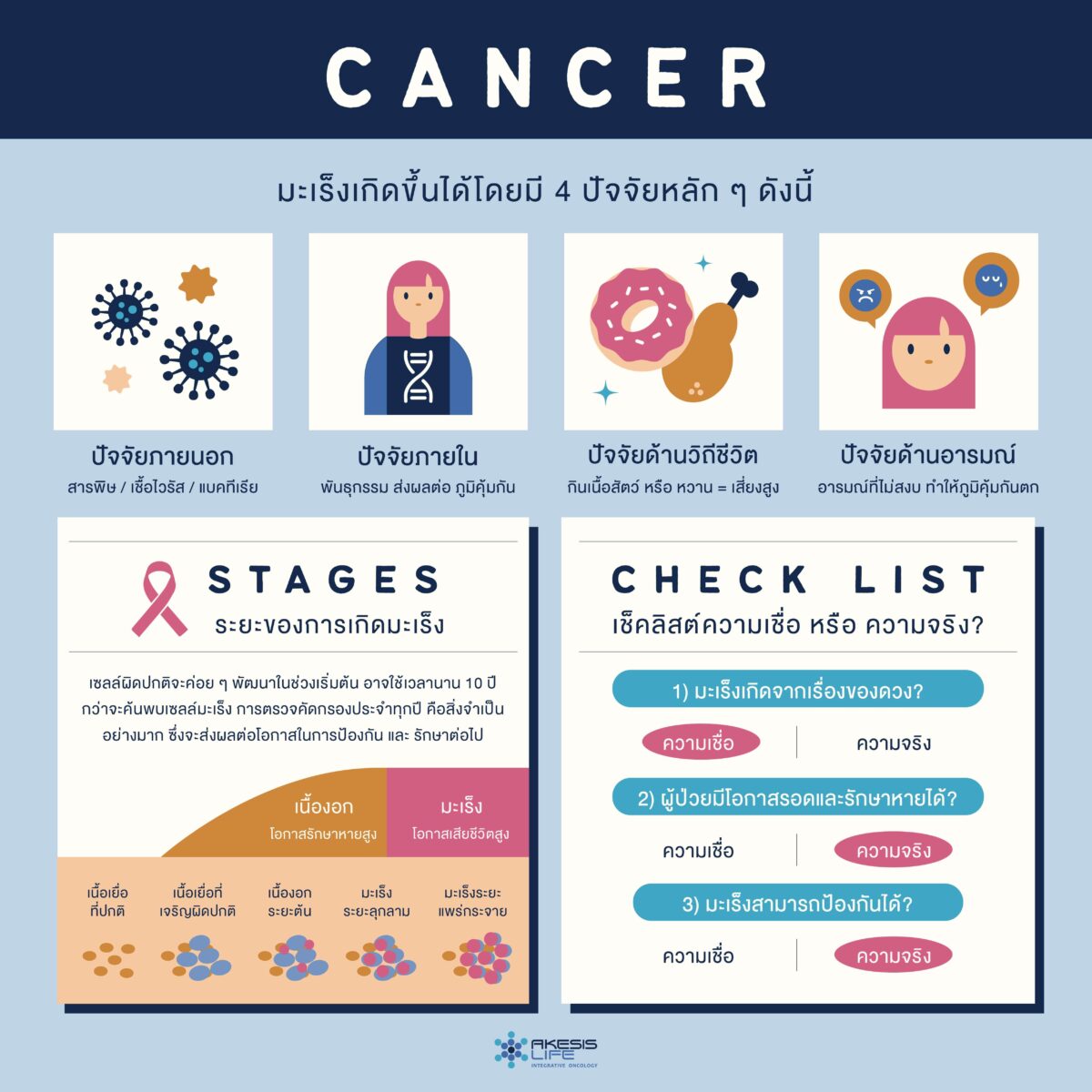How does cancer occur?

Today, the environment we live in today increases our risk of cancer. It is so difficult to avoid carcinogenic factors like toxins, environmental pollution, and stress as they are everywhere. In addition, genetic hereditary factors also increase the risk exponentially. Therefore, taking preventive measures is extremely important in preventing the occurrence of abnormalities in the body.
The reason that cancer is found to be the deadliest disease is that most of the time, cancer does not show any abnormality or symptoms until it’s too late. Patients only notice when symptoms such as anorexia, weight loss, or fatigue set in, and by that time, the cancer would already have spread. That is why cancer is also known as the “silent killer” and, as a result, the mortality rate is high.
Cancer is a disease caused by cell modification in the body and impaired cellular metabolism. Due to the fact that the body has stimulating factors that cause the cells to function abnormally. There are 4 key contributing factors are toxins, chemicals, free radicals from the environment, lifestyle, hereditary genetic make-up and the individual’s emotional state.
These factors stimulate and disrupt the cellular energy reactor known as “mitochondria,” impairing metabolism. Cells cannot generate enough energy to help the immune system. It also goes through transformations, mutations, and expansions.
Cancer is a disease caused by cell modification in the body and impaired cellular metabolism. Due to the fact that the body has stimulating factors that cause the cells to function abnormally. There are 4 key contributing factors are toxins, chemicals, free radicals from the environment, lifestyle, hereditary genetic make-up and the individual’s emotional state.
In the case of hereditary genetic factors, for example, eliminating toxic substances may not be enough to overcome damaged DNA. As a result, focusing on immunity can aid in the prevention of abnormal cells.
Obese people or those who consume a lot of meat and sweets may develop chronic inflammation, which increases the risk of cancer.
Emotional factors, such as restlessness, mood swings, or chronic depression, weaken immunity, which is another risk factor.
Lastly as mentioned above, the environment in which we live is sometimes unavoidable. Pollution and toxicity are issues that most of us face on a daily basis and can be extremely harmful to our health.
As a result of these four factors, degenerative cell disease and the formation of abnormal cells may occur. These abnormal cells have the potential to activate the “cancer genetic gene switch,” resulting in the formation of the first tumor or cancer cell in the body.

